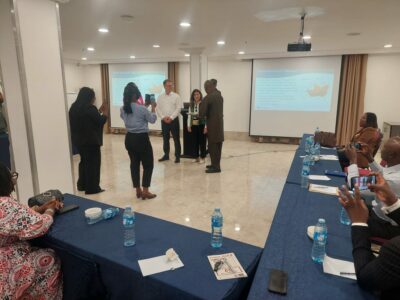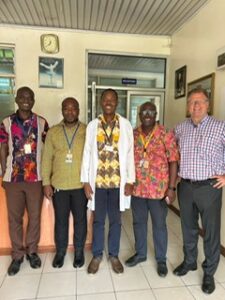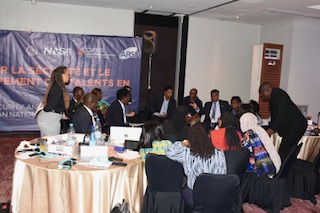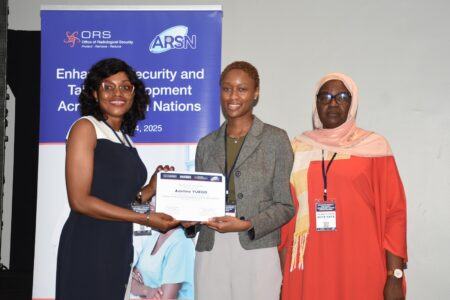Between 29 April and 16 May, WINS staff members Asel Khamzayeva and Lars van Dassen visited Nigeria, Ghana and Senegal as part of a WINS project aimed at enhancing regional cooperation on nuclear security in West Africa, generously supported by the Government of Norway.
Under the leadership of WINS Ambassador Pamela West and Dr Abraham Nmalagu, both from the Nigerian National Security Council, a large stakeholders meeting was held in Abuja with national agencies, ministries and civil society organisations related to nuclear research, technology and security.

“We also had meetings in Abuja, Nigeria, with the Nigerian Atomic Energy Commission, the Nigerian Nuclear Regulatory Agency, and the National Hospital,” said Asel. WINS was also invited to meet with Commission President of the Economic Community of West African States HE Dr Omar Alieu Touray to discuss the prospects for nuclear security cooperation in the context of the needs and objectives of the West African region.

In Ghana, WINS participated in a broad stakeholders meeting under the leadership of Dr Nii Kwashie Allotey, director general of the Nuclear Regulatory Authority of Ghana, and Dr Eric Tetteh Glover, leader of the Radiation Protection Institute of the Ghana Atomic Energy Commission. The meeting brought together the Ghanaian stakeholders in the nuclear field for a very engaged and constructive discussion of the prospects for regional cooperation in the field. Additional meetings were held with the nuclear regulatory authority, the Ghana Atomic Energy Commission, and we visited the research reactor under the aegis of the Ghana Atomic Energy Commission.

After the visits to Nigeria and Ghana, WINS participated in the “Enhancing Security and Talent Development Across African Nations” conference. The event, organised by the US Department of Energy’s Office for Radiological Security in partnership with the Senegalese Authority for Radiation Protection and Nuclear Safety (ARSN), brought together nuclear stakeholders from across the African continent.

WINS presented its ideas for cooperation in West Africa as discussed during the previous weeks in Nigeria and Ghana. The response from representatives of many African States was most constructive and helpful, and it underlined the need for a broader common nuclear security agenda for Africa at large and at subregional levels.

The day after the conference, Lars had two meetings with Senegalese authorities. He visited the National Police of Senegal to discuss common security objectives and how WINS’ services can strengthen its national nuclear security work. He also met with the Senegalese nuclear regulator, ARSN, and its director general, Arame Boye Faye, to discuss the format for deeper cooperation between the two organisations.
“These visits to and meetings with our counterparts have proven two things. WINS’ presence is appreciated and necessary in the practising world of nuclear security. WINS thinks globally, but we also have to be present and available locally,” said Lars. “The discussions with partners and friends on their home turf and in their contexts has revealed that a deeper discussion on nuclear security issues is desirable for a broader, wider and regional context. Such measures can contribute to better ways of meeting the nuclear security challenges of the present and the future.”





